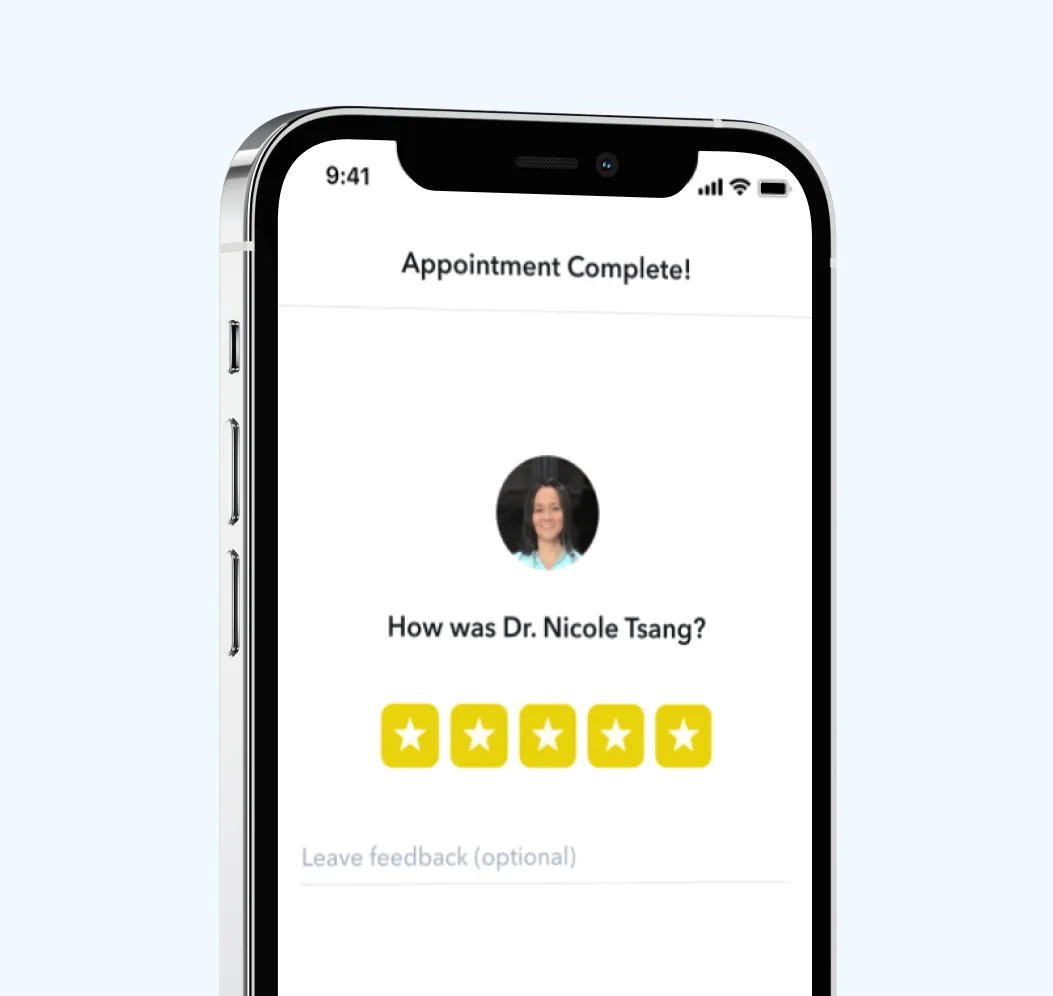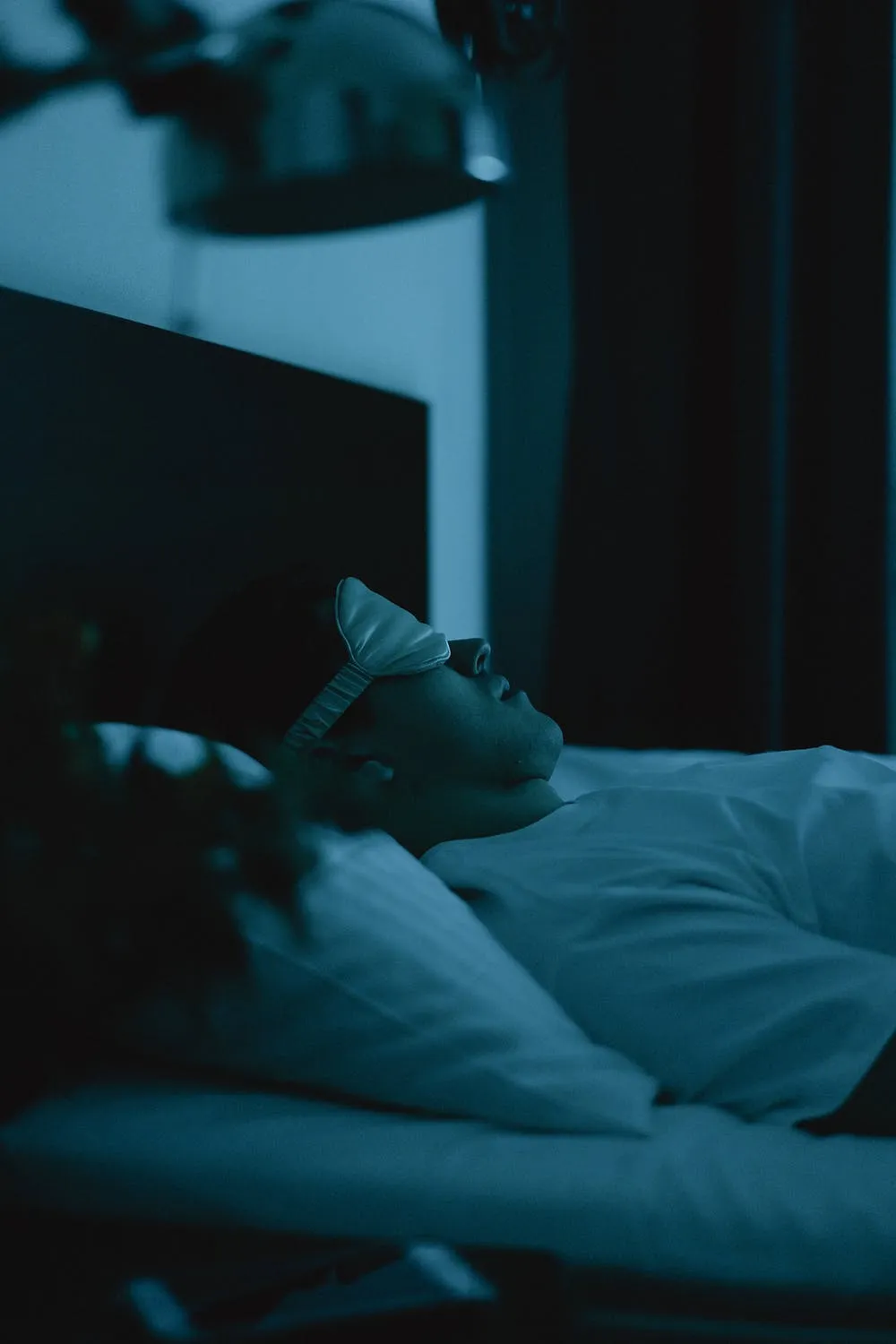All posts
When to See a Doctor for Thyroid Problems

Circle Medical Staff
May 6, 2023
12 mins

Thyroid problems are serious health issues that can lead to serious health consequences if left untreated. If you suspect that you are suffering from thyroid issues or experiencing the symptoms, it’s best to speak to a doctor as soon as possible. It is especially important to check in with your doctor if your symptoms persist or become more severe over time.
In this article, we’ll discuss some of the most common thyroid problems, the signs and symptoms you should watch for, and how Circle Medical can help with treatment from the comfort of your home. Recognizing the signs and symptoms of thyroid problems is the crucial first step, so let’s dive in.
What Are Common Thyroid Issues?
The thyroid is a small, butterfly-shaped gland located at the base of your neck. This gland is responsible for producing thyroid hormones, which can majorly affect your metabolism and other bodily functions. Common thyroid problems can be caused by an overactive or underactive thyroid. The most common issues are hyperthyroidism and hypothyroidism, which are often caused by Grave’s disease and Hashimoto’s thyroiditis, respectively.
Symptoms of these thyroid problems may present themselves, which means you should schedule an appointment with your doctor, especially if you have a family history of thyroid disease. These issues are also more prevalent in women. You don’t want to leave thyroid problems untreated. With that being said, let’s take a look at these common thyroid problems.
Hypothyroidism
Hypothyroidism is a condition that causes the thyroid gland to be underactive and produce too little of certain hormones, specifically thyroxine (T4) and triiodothyronine (T3). Hypothyroidism can be recognized by several symptoms, which may include:
- Tiredness, slowness
- Cold sensitivity
- Weight gain
- Muscle aches and cramps
- Joint pain
- Slowed heart rate
- Depression
- Irregular periods
- Dry skin
If you experience any of these symptoms, it’s important to consult your healthcare provider for further evaluation and to get a diagnosis. Diagnosis of hypothyroidism will typically include a physical exam, blood work, and imaging tests. Thyroid function tests and thyroid antibody tests are commonly used to assess your condition.
Typical treatment of hypothyroidism includes taking hormone replacement medication such as levothyroxine. This medication helps your body replace the hormones your thyroid gland can’t produce. Managing your hormone levels should help to alleviate the symptoms of hypothyroidism. You will need to have regular checkups with your doctor to ensure your condition is improving and that your hormone levels remain stable.
Hyperthyroidism
Hyperthyroidism is a condition where the thyroid gland is overactive. It produces an excessive amount of thyroid hormones, which can speed up your body’s metabolism and cause other issues. Hyperthyroidism symptoms vary from person to person, but they may include:
- Nervousness, anxiety, irritability
- Hyperactivity and mood swings
- Trouble sleeping
- Constant fatigue, tiredness
- Sweating
- Heart palpitations
- Weight loss
- Muscle weakness
- Increased bowel movements
- Goiter, or irregular growth of the thyroid gland
If you’re experiencing one or more symptoms of hyperthyroidism, it’s important to schedule an appointment with your doctor to get a diagnosis and treatment if necessary.
Diagnosing hyperthyroidism is a very similar process to diagnosing hypothyroidism. Your doctor will usually need to do a physical exam, blood work, and imaging tests. Further testing such as radioactive iodine uptake tests and thyroid scans to diagnose Graves’ disease specifically.
Unfortunately, the treatment of hyperthyroidism isn’t quite as straightforward as hypothyroidism. In the latter, replacing the lack of hormones with medication is typically the solution. With hyperthyroidism, patients may need radioactive iodine therapy and medication to inhibit the production of hormones. In some cases, surgery may even be recommended. In either case, ongoing checkups will be needed to ensure hormone levels remain stable and symptoms improve.
Graves’ Disease
As mentioned, Graves’ disease is the most common cause of hyperthyroidism. It is an autoimmune disorder that causes the immune system to mistakenly attack the thyroid gland, which leads to an overproduction of thyroid hormones. The symptoms of hyperthyroidism could be linked to Graves’ disease, and the treatment may involve medication, radioactive iodine therapy, and lifestyle changes.
Several risk factors can increase your likelihood of having Graves’ disease. Genetics can play a role, as you may be more likely to get the condition if your family has a history of hyperthyroidism. Women are also more likely to develop the condition, which typically presents in people over 30. Other risk factors may include having another autoimmune disease associated with Graves, nicotine use, and pregnancy.
Graves can also lead to several health complications such as Graves’ dermopathy, Graves’ orbitopathy, heart problems, and thyroid storms. The dermopathy and orbitopathy complications mostly cause discomfort, with dermopathy causing itchy, inflamed, and thickened skin, and orbitopathy can lead to eye discomfort and inflammation. The heart condition and thyroid storm complications can lead to much more serious health consequences and can be dangerous if left untreated.
Hashimoto’s Thyroiditis
Hashimoto’s thyroiditis is an autoimmune disorder that affects the thyroid, causing it to become inflamed. It is the most common cause of hypothyroidism. It also causes your immune system to attack your thyroid gland, though the type of antibodies that attack differs from those that attack in hyperthyroidism. The symptoms of Hashimoto’s thyroiditis will typically present as the symptoms we’ve listed for hypothyroidism, and treatment typically involves medication.
Just like Graves’ disease, several risk factors may increase your likelihood of having Hashimoto’s thyroiditis. Genetics and being female increase your chances once again, but Hashimoto’s thyroiditis is more common in people between the ages of 30 and 50. Some other factors include contracting certain bacterial or viral infections, exposure to radiation, and overconsumption of iodine.
The most severe complication that can arise from Hashimoto’s thyroiditis is a myxedema coma, which happens when the body’s functions slow down drastically as a response to hypothyroidism.
Regardless of the type of thyroid-related symptoms you experience, getting a diagnosis and treatment as soon as possible is important.
What Are Thyroid Nodules?
Thyroid nodules are growths of tissue that sometimes form in the thyroid gland. They are small lumps that are solid or filled with fluid and are typically benign. However, in some cases, they can become cancerous.
An exam or scan is the only way to find a thyroid nodule. If you have a thyroid nodule, it can occasionally grow to uncomfortable sizes. They may cause shortness of breath or difficulty swallowing when this occurs.
If your doctor detects a thyroid nodule, they may recommend further evaluation. Blood tests, imaging tests, or a biopsy may be necessary to rule out thyroid cancer. Depending on the size and severity of the nodule, medication or surgery may be recommended for treatment.
If you feel a lump where your thyroid is or experience symptoms common to thyroid nodules, make sure to let your doctor know. To recap, these are the symptoms you may experience:
- A lump that can be felt where your thyroid is
- Shortness of breath
- Difficulty swallowing
- Weight loss
- Irregular heartbeat
- Excessive sweating
- Tremors
What Kind of Doctor Should You See?
The first step to diagnosing a potential thyroid issue is typically to speak with your primary care provider. You can discuss your symptoms and concerns with your primary care provider, and they may order recommended blood work or other tests to get more information. If necessary, they may also refer you to a specialist for further testing and to confirm a diagnosis before pursuing treatment.
Of course, going through the steps of going to a primary care provider and getting an appointment can be slow and inconvenient. That’s why it’s much easier to schedule a telehealth appointment with the primary care providers at Circle Medical. This way you can set up a same-day appointment and talk to a physician from the comfort of your home. Your Circle Medical provider can then refer you to a nearby lab or specialist if needed.
The Importance of Getting Your Thyroid Checked
Your thyroid is crucial for balancing your metabolism and hormone levels. It’s important to get it checked to ensure your ongoing health and well-being. Having it checked regularly will ensure you can catch potential problems early on and get the treatment you need.
As mentioned, the health consequences of untreated thyroid problems can be dangerous. At best, it can cause daily difficulties and discomfort in your life. In worst cases, complications like thyroid storms can be life-threatening. Rather than deal with complications and risk your health, it’s best to seek medical help as soon as possible.
Regular thyroid checks will help ensure your thyroid stays healthy and functioning properly. This brings us to our last subject — the difference between endocrinologists and ENTs.
Endocrinologist vs. ENT
Your primary care provider may deem it necessary to refer you to a specialist to complete your thyroid diagnosis. This specialist will either be an endocrinologist or an ENT. But what is the difference between these two medical professionals?
An endocrinologist is a physician that specializes in diagnosing and treating conditions related to the endocrine system, which refers to hormone-producing organs and glands like the thyroid. Some endocrinologists specialize in the thyroid, specifically. These medical professionals can diagnose thyroid issues, come up with treatment plans, and write prescriptions.
ENTs are ear, nose, and throat specialists. ENT specialists are trained to diagnose and treat conditions that affect these areas, including the thyroid. Typically, ENT specialists are more generalized to the ear, nose, and throat, though they may receive additional training in a subspecialty like thyroid treatment and diagnosis.
Ultimately, your primary care provider will likely make a recommendation between the two. The more specialized endocrine-related knowledge of an endocrinologist will usually be recommended for the diagnosis and treatment of thyroid-related issues.
Talk to a Telehealth Doctor Today
If you’re experiencing symptoms related to thyroid issues, make sure to speak to your primary care provider and make an appointment as soon as possible. Circle Medical’s telehealth doctors can make the thyroid diagnosis and treatment process as convenient as possible.
Instead of dealing with in-person appointments and waiting for appointments to open up, Circle Medical offers same-day appointments. Using our mobile app, you can get care from the comfort of your home. Our primary care providers can evaluate your symptoms, provide diagnoses, and prescribe medication if medically appropriate. They may order blood work or refer you to a convenient nearby specialist to confirm diagnoses.
Get Treatment with Circle Medical
Ready to get your same-day appointment set up? With over 200 board-certified primary care providers, there’s no reason to get primary care in person anymore. Get care from the comfort of your own home and schedule your appointment with Circle Medical today!
Circle Medical Providers must meet all of the following standards:
-
Exceptionally qualified in their field
-
Board-certified
-
Deeply empathetic for patients
-
Follows evidence-based care guidelines
-
Embracing of diverse patient backgrounds
-
Impeccable record of previous care
400+ Primary Care Providers.
100% Confidence.
No matter which Provider you choose, you will be seen by a clinician who cares deeply about your health and wants to help you live your happiest, healthiest life.
Circle Medical Providers are held to an exceptionally high standard of compassionate, evidence-based care.
Book Appointment

